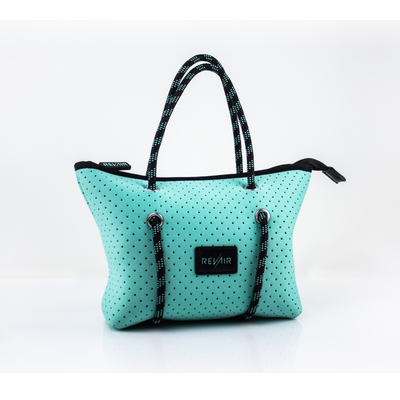
In-Depth Guide To Co-Washing And Natural Hair

It's every naturalista's dream to have a simple, yet effective hair routine. As much as we love our hair, we'd like to not spend hours doing it. We still have places to go, people to see, and coins to make. In comes the convenience of co-washing hair.
Many people have questions about co-washing. Does co-washing save time? Does it make natural hair shine?
What is Co-Washing in the Hair Care World?
It's a simpler way of saying “conditioner-only washing,” when one uses conditioner instead of shampoo on wash days.
You might be thinking, “Isn't conditioner meant to, well, condition?” Yes and no.
Many conditioners have small quantities of detergents that you'll find labeled as cetrimonium or behentrimonium chloride on the ingredient list.
When the detergents come into contact with water, they lift small amounts of dirt. This results in hair that feels clean but not squeaky clean. Squeaky clean hair is a no-no in natural hair care.
The same conditioners also have their trademark conditioning ingredients like honey and shea butter. They leave strands feeling smooth and silky, just how curly girls like it.
The Pros of Co-Washing
Curly and coily hair has a lot to gain from co-washing, which is why many men and women alike have had it in their hair routine for years now.
It keeps the hair conditioned
When finding your perfect hair products, you probably encountered shampoos that left your hair super clean. They achieved this by stripping the hair of all its natural oils, which in turn wasn't so great for your hair.
Co-washes don't strip your hair. Instead, they leave it moisturized, which significantly reduces frizz and leaves the curls feeling soft and fluffy when styled.
It reduces the chances of damaging your hair
Type 3 and 4 hair are so beautiful, yet delicate. When not treated with caution, it can easily break off and make you feel like your length is stagnating.
Most times, we come home from the gym or a run with an itchy scalp due to sweat. And that leaves us stranded because it's not yet wash day, but we want all the sweat gone.
Shampooing after every workout leads to over-manipulating the hair. Shampooing is basically sudsing and rubbing the hair with strong cleansing agents.
An alternative that carries less risk is rinsing the hair with apple cider vinegar and following up with a co-wash to return the hair to its optimal pH balance.
It saves you money
A proper co-wash leaves hair feeling soft and moisturized. In this state, it usually responds much better to styling products, so you find that a little takes you a long way.
This simplifies your routine and allows you to reduce your product usage.
The Cons of Co-Washing
There are a few problems that can result from co-washing.
It causes product build-up
Ever feel like you need to clarify your hair even if you use shampoo? The same thing happens with co-washes, though they carry a higher risk of causing product build-up since they're not general cleansers.
This is why one needs to occasionally clarify their hair to ensure the hair continues to respond to styling products.
It can lead to an itchy scalp
If your scalp is sensitive like a baby's skin, co-washing can cause irritation. This happens when you co-wash your hair, but unknowingly leave some product build-up sitting on the scalp.
In such cases, you might need to clarify your hair or resort to using shampoos more often than co-washes. Putting some drops of tea tree oil in your co-wash can also handle irritation as the oil helps lift dirt.
Is Co-Washing Meant for Your Hair Type?
Now that you know the benefits and demerits of co-washing, you might be wondering if it's suitable for your hair type. While no two heads of hair are the exact same, there are qualifying factors that make one a good or a bad candidate for co-washing. If you have:
1. Curly and Coily Hair
Is your hair sometimes so dry that you fear it's going to snap off at the sight of any brush or comb?
Hair on the type 3 and type 4 scale is prone to dryness because scalp oils usually find it harder to make their way down the hair shaft and condition it. This means that the hair needs some extra TLC to keep it soft and healthy.
Co-washing can come in handy, seeing as it will add extra conditioning that scalp oils are unable to provide.
2. Straight or Fine Hair
Hair that's straight usually gets oily pretty fast as sebum meets little to no resistance when traveling down the hair shaft. It thus needs to be washed quite often to get rid of build-up.
Co-washing such hair is a nightmare since it will be weighed down by the conditioning products and feel greasy to the touch.
Fine hair will also have a weighed-down look, as the hair strands are extremely thin to begin with.
3. An Oily Scalp or Scalp Problems
Co-washing can cause irritation to people with scalp issues such as dermatitis. It's best to see a dermatologist first before following any new hair trends.
Those with oily scalps should also steer clear of co-washing since it won't effectively eliminate the build-up.
4. Color-Processed Hair
If you have colored hair, you know it's all fun and games till the color starts fading and you're left looking like you had a failed attempt at coloring your own hair. Co-washing can save you some money by allowing you to maintain the vibrance of your hair color without having to frequent the salon for a retouch.
While most shampoos strip the pigment away, co-washing simply lifts dirt from the hair without disturbing the pigment.
How to Choose the Perfect Co-Wash Conditioner
People with hair that lies on the thicker side can often get away with using their regular conditioners. If your hair isn't that thick, we would advise you to use a cleansing conditioner.
Cleansing conditioner is basically a conditioner manufactured specifically for co-washing. It usually has more powerful cleansers than those in ordinary conditioners, but it still goes gently on the hair strands. This is mainly because the cleansers come from natural ingredients like aloe vera.
There are two types of cleansing conditioners.
1. Traditional cleansing conditioners are made of a “no-poo” cleansing agent, plus a thick conditioner that gradually seeps into the hair. These have higher chances of causing build-up seeing as they're so heavy.
2. Modern cleansing conditioners are formulated to quickly seep into the hair and lift dirt on the hair and scalp without leaving unnecessary build-up.
No matter which conditioner you pick for your co-wash, ensure the formulas have no sulfates and harsh cleansing agents. Also, avoid ingredients like mineral oils, silicones, and heavy petrolatum, as they usually sit on the hair.
The Right Way to Co-Wash Hair
Conditioner isn't shampoo which means there are adjustments you need to make to your wash routine, so your hair remains healthy.
Ensure your hair is sopping wet
Whenever you want to wash the previous night's chili pot, the first thing you do is soak it to loosen dirt, yeah? The same goes for your hair. Having it fully saturated will also help the conditioner go on more easily.
Be generous when using the conditioner
One of a natural's biggest pet peeves is buying a tub of conditioner and having it last for three uses or less. Unfortunately, you can't afford to use dime-sized dollops of conditioner when co-washing.
You want to make sure you use enough to coat your strands fully since you're doing a two-in-one process. But hey, since you're skipping the shampoo, the sacrifice is worth it.
Distribute the conditioner onto your scalp and on every strand
On your wash day, spreading conditioner evenly helps loosen residue and break down oils on the hair. After that, you want to massage your scalp to dislodge any stubborn dirt fully.
Then, let the conditioner sit on the hair for a maximum of five minutes so it can be absorbed into the strands. Rinse it thoroughly with warm water and use warm-to-cool water for your final rinse to seal the hair cuticles.
Switch to a clarifying shampoo after two to four weeks
Since build-up is inevitable, you can hit the reset button by using a clarifying treatment which can come in the form of a shampoo or a clay mask.
It's up to you to experiment with how frequently your hair needs clarifying. A good rule of thumb is to monitor when your hair first starts feeling weighed down, then stick to doing a clarifying wash a few days before that.
Most people usually do one every two weeks, or they alternate between co-washing and shampooing.
Conclusion
From what we've seen, co-washing is probably a trend that will stick around. However, you shouldn't just take our word for it.
Every head of hair is unique, so you should experiment with an open mind. If your hair doesn't love it, there's a routine out there that will work for you. Don't stop searching.
If your hair loves it, welcome to the co-wash community!
Join our hair family by contacting us today to stay updated with healthy hair advice from our glam experts.















